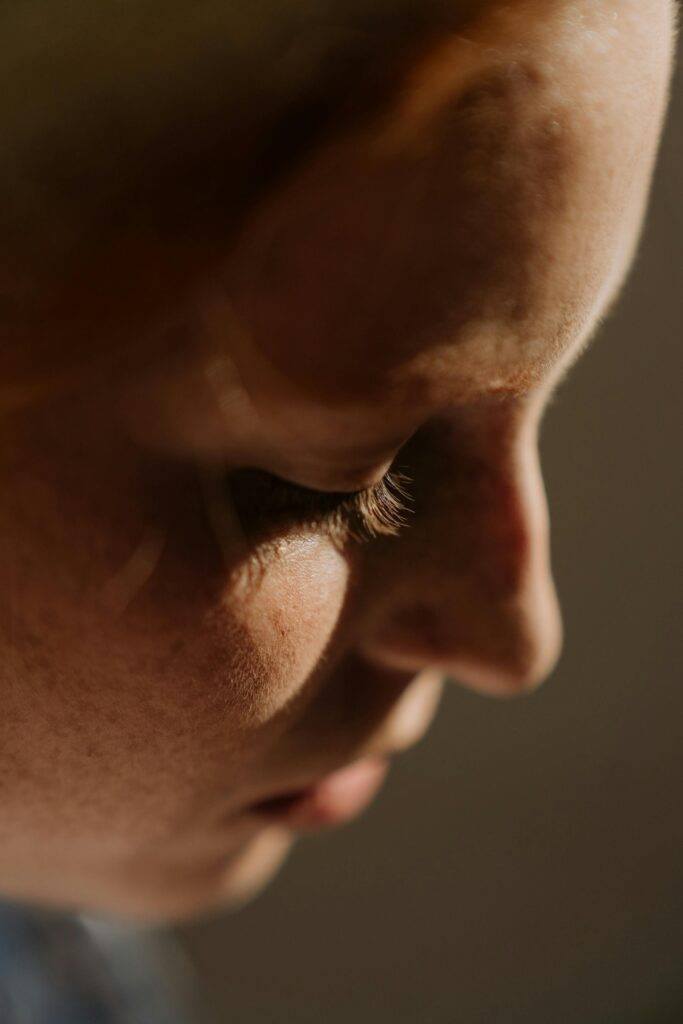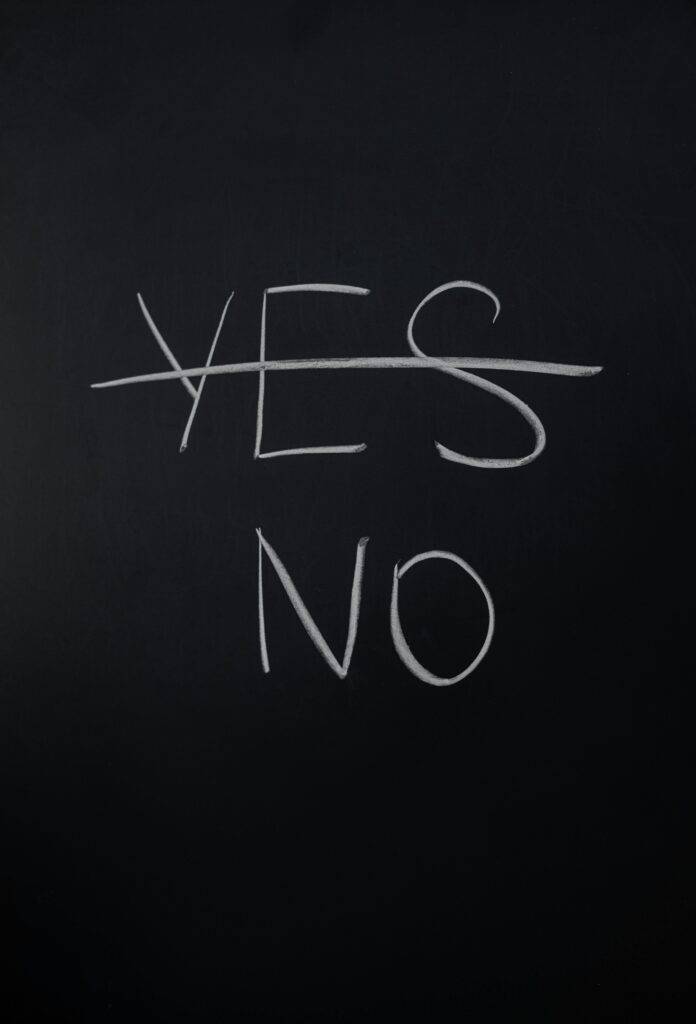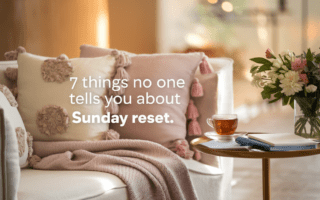There was a period when I didn’t feel like myself at all.
I was working long hours, spending my weekends “catching up,” then going home and trying to push through more tasks.
The worst part? I thought that was normal.
Being exhausted meant I was doing something right—I was responsible, hardworking, and maybe even strong.
But the truth? I was spiraling. I was emotionally tired. I was mentally checked out and physically worn down. And I wasn’t giving myself any space to feel it.
It wasn’t until I sat down with my doctor that I realized I wasn’t just tired—I was depleted. That appointment shifted everything. I started noticing the patterns that were keeping me stuck.
These 10 habits were quietly wearing me down, and once I broke them, my mental health finally had a chance to breathe.
1. Pretending You’re Fine When You’re Not

This one’s easy to hide.
I was the “strong one” who didn’t complain.
I wore my busyness and silence like armor. I thought if I admitted I wasn’t okay, people would see me differently—like I wasn’t reliable or capable anymore.
So I smiled. I cracked jokes. I answered, “I’m good!” when I wasn’t. Then I’d go home and collapse, cry in the shower, or feel utterly numb while folding laundry.
No one knew I was struggling because I didn’t let them. And that made it even lonelier.
What Helped:
Admitting—first to myself—that I wasn’t okay. Then, to someone else. That small act of honesty lifted a weight I didn’t realize I was carrying.
2. Working Around the Clock and Calling It Ambition
I used to think my hustle was impressive.
I worked long hours during the week, but weekends were for catching up—emails, unfinished tasks, and prep for Monday.
And when I got home? I didn’t rest. I’d tidy, check messages, and plan the next day.
It felt “productive,” but it was avoidance. I feared stillness because I didn’t know what might surface if I slowed down.
The line between ambition and burnout is thin—and I crossed it.
What Helped:
I set actual limits—no work after a particular hour. I started protecting my energy like a limited resource—because it is.
3. Waiting Until You’re Falling Apart to Ask for Help

I was the queen of “I’ve got this.”
Even when I didn’t, even when I couldn’t sleep, couldn’t focus, couldn’t stop snapping at people I love.
I told myself it was just stress, life, and a rough patch. But that rough patch lasted for months.
I kept thinking things would magically get better on their own. They didn’t.
What Helped:
Talking to my doctor. Being honest. Getting help before I hit the bottom was the best thing I’ve done for myself. You don’t need to wait for a crisis.
4. Letting Social Media Drain You
I scrolled because it was easy. It’s a quick hit of distraction.
But the longer I stayed online, the more I compared, the more I spiraled. Everyone looked like they were thriving, but I felt stuck, tired, and messy.
And don’t even get me started on the news—doomscrolling became part of my bedtime routine. Not exactly calming.
What Helped:
Putting my phone away at night. Choosing calm, quiet, real-life moments over manufactured ones. I didn’t need more content—I needed space.
5. Saying Yes When I Should’ve Said No

I said yes to everything—extra work, favors, social plans, things I didn’t even want to do—because I felt guilty not being available. I didn’t want to disappoint anyone. I didn’t want to seem selfish.
But every “yes” that should’ve been a “no” drained me. I was giving away energy I didn’t have and resenting it later.
What Helped:
Creating space between the ask and my answer. Giving myself permission to pause, to say no, and to protect my peace.
6. Neglecting Basic Needs in the Name of Hustle
I’d drink coffee instead of water. I’d skip breaks. I told myself I was too busy to take care of myself—but really, I just didn’t make it a priority.
When your body is constantly neglected, your mind suffers too. I was constantly tired, irritable, foggy, and disconnected.
What Helped:
Focusing on the basics: food, water, movement, sleep. It doesn’t have to be perfect—but consistent care makes a huge difference.
7. Letting Guilt Run the Show

Guilt whispered that I was lazy for resting. That I should be doing more. That I was behind. That if I asked for help, I was a burden.
And because I believed it, I kept pushing myself until I crashed.
What Helped:
Learning to separate guilt from truth. Guilt isn’t a compass—it’s often just noise. I stopped apologizing for needing rest and started allowing myself to feel human.
8. Believing You’re Supposed to Do It All Alone
I thought needing support made me less capable.
So, I tried to be my own therapist, cheerleader, and emotional support system. But there’s only so much one person can carry. Eventually, I cracked under the pressure of trying to do it all myself.
What Helped:
Letting people in. Talking to someone. Not waiting for a breakdown before accepting support.
9. Filling Every Free Moment With Screens
After work, I’d crash into the couch and open my phone or turn on Netflix. I told myself I was unwinding—but I wasn’t actually resting. I was numbing. Hours would pass, and I’d still feel just as drained.
What Helped:
Replacing that time with something that gave me energy…
10. Not Having an Outlet for My Thoughts or Creativity
I didn’t realize how badly I needed an outlet until I started blogging.
At first, it was just a tiny side project. But soon, it became something more—an emotional release, a creative spark, something that felt mine.
Instead of zoning out after work, I started writing. Reflecting. Creating.
I’d come home, check in with the kids, cuddle my cat, and then open my laptop.
Blogging gave me something to look forward to. It helped me process what I was feeling. It reminded me that I’m more than my job, routines, or responsibilities.
What Helped:
Creating something just for me. Whether it’s blogging, journaling, art, or music—having a creative outlet made all the difference.
Final Thoughts: You Can’t Heal in the Same Patterns That Hurt You
If any of these habits sound familiar, I want you to know this: you are not weak. You are not broken. You are tired—and that matters.
Breaking these habits didn’t happen overnight. But little by little, I started choosing differently. I started picking myself. And every small step added up.
Your mental health is worth protecting. Your peace is worth prioritizing. And whatever you’re feeling—you don’t have to carry it alone.




